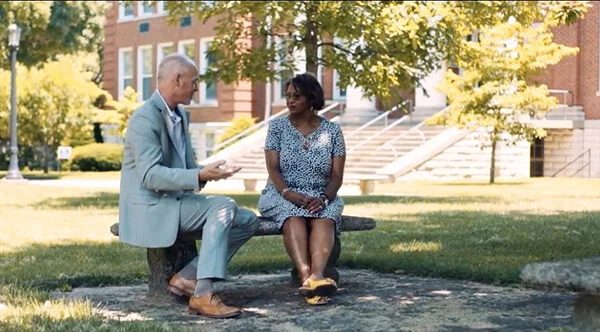I Just Lost $20K and No One Told Me?
I have this kind of conversation every week with a potential client trying to qualify for Medicaid.
We find they receive advice by a business office worker at a nursing home or friend with “experience.” They trust them when they advise them to “just spend down the $20,000 you have and then you will qualify for Medicaid.”
But they won’t qualify.
Now the family is broke, cannot pay for this month’s care and will not qualify for Medicaid for another two months.
Sometimes I’ll get a call saying, “well the nursing home told me to pay for my parent’s bill and Medicaid will reimburse me.” Nothing could be further from the truth!
Yes, there are reimbursement rules with Medicaid. This area of law is very complicated, often involving many other areas of law like healthcare, privacy and ERISA, real estate, family/divorce, contract, will and probate, insurance, and banking. Not to mention the federal and state law on Medicaid. Our attorneys at Elder Law Guidance, who specialize in elder law, can streamline the process and save you time and money.
Making a huge financial mistake and possibly even doing something illegal is something that we see nearly every day.
The people that work in the healthcare industry have big hearts and want to help, but corporate owners of nursing homes are looking to maximize profits. They tell their employees what to say (or not say). Rarely, they will advise you to contact an elder law attorney.
Why? Because the longer you stay private pay in the nursing home, the corporation makes 20% per month from you.
You may find companies that promise to handle your Medicaid application for “free.” But they are getting paid from somewhere, right? Anyone other than an attorney who gives you directions about how to navigate Medicaid is a risky situation.
Additionally, Kentucky law has not made this practice of Medicaid planning illegal for non-attorneys. They don’t have malpractice insurance to protect you. They can’t have their license revoked for giving incorrect or partial information. And, they don’t have a fiduciary obligation to protect you.
It’s called unauthorized practice of law. Kentucky attorneys have attempted to address this problem for several years now, but there still is no Kentucky law in place, unlike other states.
The best thing you can do is call an attorney who focuses exclusively on elder law to help you tackle the Medicaid beast. You don’t have to give up the farm, house, condo, or anything else. Elder Law Guidance can help you keep it AND care for your loved ones. Call us at (859) 544-6012 for a free consultation and to learn more about your options.
Medicaid Coverage for Long-Term Care Without Selling Property
Medicaid, a federal health insurance program for low-income people, can significantly aid in covering the costs of long-term care, such as nursing homes, skilled nursing care, and community-based services, without forcing families to sell their property.
States offer Medicaid programs that allow individuals to receive long-term care in Medicaid-certified facilities or through community-based services aimed at keeping people out of nursing homes. To protect family assets, Medicaid permits certain exemptions, such as the family home, under specific conditions.
For example, if a family member, such as a community spouse or dependent, resides in the home, it may not be considered a countable asset. Additionally, Medicaid planning strategies involving legal and financial tools like life insurance policies with a cash value under certain limits can help families qualify for Medicaid while preserving significant assets.
Medicaid Eligibility for Long-Term Care
Eligibility requirements for Medicaid long-term care services hinge on multiple factors, including monthly income, financial assets, and the level of care needed. Generally, to qualify for Medicaid, applicants must have income and assets below certain thresholds, which vary by state.
For instance, most states set a monthly income limit and an asset limit, excluding exempt assets like the primary residence under certain conditions, personal belongings, and one vehicle. The eligibility rules also consider the applicant’s marital status and whether the care services will be provided in a nursing home, assisted living facility, or through adult foster care.
For married couples, assets and income are often considered jointly owned, affecting eligibility. Medicaid planners can assist in navigating the complex application process and implementing strategies to meet these eligibility requirements while preserving assets.


